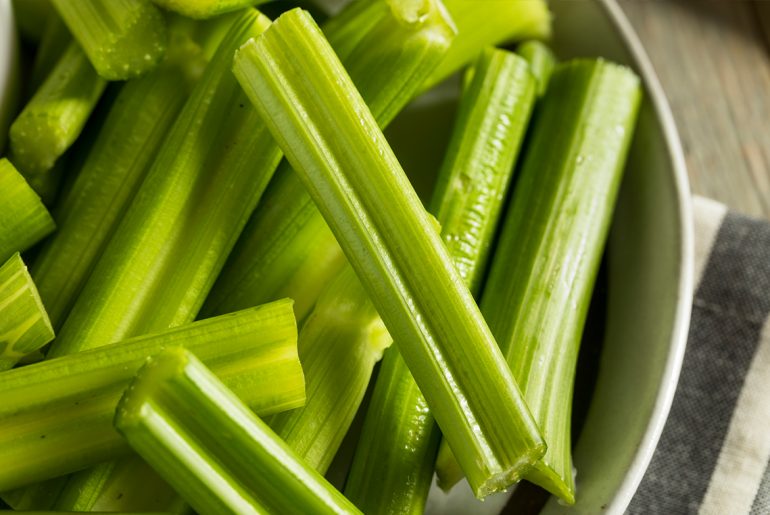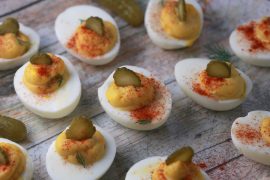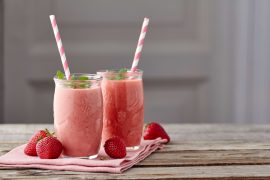Some food myths just won’t quit. They usually persist because people cling to old science or wives tales out of confusion or simply out of habit.
Some myths stick around because they can be easier than the truth. Eating a balanced diet and getting enough sleep and exercise is usually the best course for fighting disease and maintaining overall health. But drinking alcohol to fall asleep and then energy drinks to stay awake or lose weight is seen as easier and sexier… but it won’t give you the healthy results you seek.
Here are 9 myths you should purge from your brain right now.

Myth: The fewer carbs in your diet, the healthier you are
Healthy truth: It’s true that most Americans eat more refined carbs and sugar than we should. These should definitely be avoided. But some carbohydrates are essential to a healthy diet, since they provide energy for your whole body. It’s best to get your cards from minimally processed foods like whole grains and dairy, fruits, nuts and beans.

Myth: A nightcap will lead you to a solid sleep
Healthy truth: Drinking alcohol before bed could increase your wakefulness or disrupt your sleep.

Myth: All carbonated beverages are bad for you
Healthy truth: Sure, pop won’t do you any favors. It’s loaded with up to 44 tablespoons of sugar, and even if you reach for a diet version, you’re still consuming harmful sugar alternatives. However, if it’s the bubbly you crave, a sodium-free seltzer with a lemon or lime wedge can quench your thirst without contributing to sugar intake, weight gain, cavities, blood pressure, or any other number of problems pop has been linked to.

Myth: Cranberry is the cure-all for urinary tract infections
Healthy truth: Once you have an infection, no amount of cranberry juice can cure you. You’ll need antibiotics. But drinking the juice or taking cranberry supplements regular can aid in preventing infections in the first place. the compounds in cranberry juice can stop the bacteria responsible for infection from sticking to the bladder wall.

Myth: Vegetarian diets are naturally healthy
Healthy truth: A diet rich in minimally processed fruits and and vegetables and carbs can be a healthy one. It can lower high blood pressure and health with a variety of other ailments. However, omitting meat doesn’t automatically mean you’re healthy. You can be vegan and still pig out on Oreos and Sour Patch Kids — not healthy. Being a healthy vegetarian or vegan is as much as what you eat as what you don’t.

Myth: Feed a cold, starve a fever
Healthy truth: There’s not medical reason you shouldn’t eat when you feel feverish. In fact, when you’re sick, you need extra nutrition because your metabolic rate is working at a higher level fighting off your infection. You might have less of an appetite, but you should still eat whatever you can tolerate.

Myth: Reach for fat-free or low-fat foods over the regular product whenever possible
Healthy truth: While this is generally true for meats and dairy, the same standard doesn’t hold up to processed foods. The ratio of sugar, salt, and fat is constantly being toyed with by major food corporations. When manufacturers remove one ingredient from a food, it has to be replaced with another that will compensate for taste, texture and consistency. So you might be getting a “sugar-free” cookie, but chances are, it just has more fat to compensate for flavor. Most nutrition experts now believe you’re better to reach for the full-fat version but limit yourself, or opt for healthy fats, like nuts and avocados to help cut the bad stuff.

Myth: Frozen or canned produce isn’t as nutritious as fresh produce
Health truth: Fruits and vegetables are most nutritious the instant you pick them. So you have truly fresh product available to you, then yes, that’s the best. However, what most people thing of as “fresh” — the stuff in the grocery store isle — has had a long journey since being picked. It might have been weeks since it even saw sunlight. During shipping and storage, the natural enzymes are released, which causes them to lose nutrients. Frozen fruits and veggies, however, are quickly frozen once removed from the orchard or farm, so many more vitamins and minerals are saved within.

Myth: Eating celery is negative calories
Healthy truth: It’s fun to think that there is a negative calorie food out there. But with 10 calories per serving, celery doesn’t qualify, even with calories subtracted for chewing. However, with so few calories, it’s still a great healthy option.
Originally published March 27, 2018
Also see, Roasted Red Pepper and Cauliflower soup.




